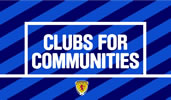Nutrition Guide
Macronutrients
Fats, protein and carbohydrates all provide your body with fuel to maintain energy. These are what we call the ‘macronutrients’.
Carbohydrates are the primary fuel used by working muscles. Roughly about 60% of your food should come from carbohydrates. So I recommend you have this through wholemeal breads, pastas, rice, cereal, fruit and veg.
Protein can be used as a source of energy and is critical for building new muscle tissue. If you are taking part in resistance training, your body will require additional protein. Roughly 15%-20% of your food should come from proteins. So I recommend you eat this through chicken, beef, fish, eggs, nuts and beans.
While you should monitor your fat intake, you should not remove it from your diet completely. Fats provide fatty acids that can be used as a source of energy – especially if your exercise sessions last longer than one hour. Roughly 15-20% of your food should come from fats. So you really don’t need to worry about adding foods specifically for the fat. You will get enough fat through your carbohydrates, proteins and things like nuts, eggs, peanut butter, and oils.
Breakfast: wholemeal toast, omelette, eggs, cereal, oatmeal, yogurts, fruits, smoothies. Depending on your time and effort. I think a good one on limited time would be porridge and fruits or even other wholegrain cereals.
Lunch: again depends on effort and time. If you are making pieces, then wholemeal bread with lean meat. Yoghurts, fruit, cereal bars, eggs, nuts. If you usually have bags of crisps then try substituting that for pop chips, rice cakes or popcorn.
Dinner: lean protein source e.g. Chicken, beef or fish. Carb source e.g. potatoes, pasta, rice, and then vegetables. Beans are another great addition as well.
Snacks: finding alternatives for ‘unhealthy snacks’. So ‘snack a jacks’, ‘pop chips’ or popcorn are great replacement for crisps. Cereal bars, nuts and yoghurts are all great. Fruit is also a go to snack.
Hydration
It’s crucial to stay hydrated when you are taking part in exercise. Inadequate fluid intake leads to dehydration. This affects your performance; and can be dangerous for your health too. Although dehydration can happen in any activity, it’s more prevalent when exercising in hot and humid conditions. Water is perfect for rehydration, but if you are engaged in physical activity for longer than one hour, sports drinks that include electrolytes can be helpful. Intense exercise, especially in hot weather, can quickly leave you dehydrated.
All high-intensity athletes should drink fluids early and often, and don’t wait until you’re thirsty. By the time you feel parched, you may be seriously dehydrated.
One way to monitor hydration is to keep an eye on the colour of your urine. A pale yellow colour means you’re getting enough fluid. Bright yellow or dark urine means you’re falling short
Tips-
- Make your lunch for work/school night before to avoid making poor choices when buying lunch.
- fill big 2l bottle of water with diluted juice every morning and make sure you finish it each day
- Using different sauces and spices to keep your healthy meals interesting and tasty.
- Allow yourself 1 treat of your favourite snack or food each day to help stay on track.
- If you are having porridge, then get creative to keep it interesting, by adding different fruits or try ‘overnight oats’
- Substitute ‘sugar free’ fizzy drinks for the original drinks and limit yourself to just 1 per day.
- If you know you have eaten something ‘bad’ or ‘unhealthy’ or you are planning on an ‘unhealthy’ dinner then try and keep the rest of the day good, high protein and healthy. Then get back on track the next day.
Again, these ‘whole foods’ should keep you full up and give you a lot of energy, so if you are still feeling hungry, try just eat these foods in more volume rather than opting to junk food, or even try drinking more fluids to fill the stomach.
Game Day.
On the day of a Match, eat your last meal 3 to 4 hours before exercising, to give your stomach time to empty, however eat a fast absorbing carbohydrate such as fruit, cereal bar or even sweets half hour before playing to satisfy hunger and give additional energy.
My recommended foods on game day would be oatmeal, wholegrain cereals, pastas, yoghurts, fruits and vegetables.
Following a match, I recommend you still get some good nutrition for recovery. A good source of protein along with complex carbs is optimal. Alongside this, it is vital to keep drinking water to keep hydrated throughout recovery.

